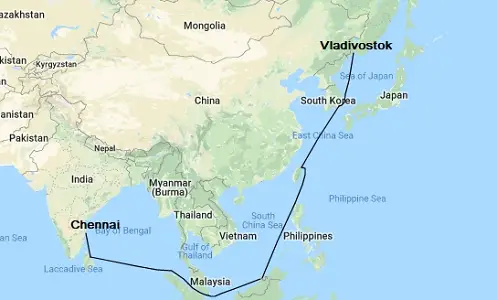#19 Fishy Waters Briefing: India ports may face a strike, COP 29 a cop-out and more

India ports may face strike over unmet needs
India’s trade unions of port and dock workers are unhappy. On 23rd November, the National Coordination Committee of Six Federations of Port and Dock Workers met in Goa to discuss their grievances. In September this year, the Indian government had promised the workers that it would force the state-owned ports to implement the provisions in a previously agreed upon settlement. Without the implementation, workers don’t reap the benefits of the negotiated contracts, particularly around increased wages and retirement benefits. The main issue centers around wage adjustments, pensionary promises and a retroactive productivity linked reward (PLR) scheme, which was designed to give workers a boost in pay for the work they did since 2020.
In August, a potential strike by the trade unions was called-off because the Indian government reached a settlement with the union workers promising to meet their demands. But the new agreed-upon settlement, represented by the Indian Ports Association, has not yet been implemented. Without its implementation, the workers cannot renegotiate their contracts.
They feel cheated, and are planning to go on an indefinite strike from 17th December. On 5th December, they will be carrying protests at the respective state-owned ports. There are six trade unions involved – All India Port and Dock Workers Federation, the Water Transport Workers Federation of India, the Port Dock and Waterfront Workers Federation of India, the Indian National Port & Dock Workers Federation and Bharatiya Port and Dock Mazdoor Mahasangh.
This is bad news especially for India’s trade business. In the last six months, India exports have seen an uptick since October; the value of the country’s exports increased 17 percent year over year.
COP 29 has turned out to be a cop-out
Delegations representing several small and impoverished nations severely threatened by climate change walked out of consultations last week as the UN climate talks in Azerbaijan failed to clinch a deal to help the nations most at risk.
The group of AOSIS (Alliance of Small Island States) and LDCs (Least Developed Countries) stated that they felt they had not been heard, and a deal was made without their consultation. They felt they had not been included in the negotiations, and the rich nations are mostly talking amongst themselves.
Developing nations have asked for $1.3 trillion (€1.25 trillion) to help them adapt to the immediate consequences of climate change, such as droughts, floods, rising sea levels and extreme heat.
They say that sum would also help pay for losses and damage caused by extreme weather events, and aid them to wean their energy production from fossil fuels.
An official draft on Friday pledged $250 billion annually by 2035, a sum that was raised to $300 billion on Friday, sources said.
In the end, negotiators agreed on a looser call to raise $1.3tn each year from a wide range of sources, including private investment, by 2035.
Some countries, including India and Nigeria, accused the COP29 presidency of pushing the deal through without their proper consent, following chaotic last-minute negotiations.
The Chennai-Vladivostok Eastern Maritime Corridor becomes operational

Dubbed as the Eastern Maritime Corridor, a sea-route between Chennai and Vladivostok in far east Russia is now operational. Container ships carrying crude oil, metals, and textiles have begun arriving at Indian ports through this new route. The sea corridor, covering a distance of a distance of about 5,600 nautical miles (10372 km), is set to enhance maritime connectivity between India and Russia's Far East region. This route reduces the cargo transportation time by up to 16 days. Currently, it takes over 40 days to ship goods from India to Far East Russia via Europe. With the new route, this time will be slashed to just 24 days.
An ushering of a new trade union
The National Federation of Small Scale Fishworkers has officially become India’s first trade union of fishworkers to encompass fishers in different geographies in different roles in the value chain and in different types of fish production. It will work towards protecting, and fighting for the rights of small scale fishworkers across India.
India aims to launch marine fisheries census
On 21st November, which is designated as World Fisheries Day, the Indian government launched a flurry of schemes for marine fishers. Among them, is the ambitious plan to carry out the ‘marine fisheries census 2025’. The aim is to carry this out digitally, cover the entire coastline of the country, including the island, and complete the task within 45 days, with the help of 3,500 staff members. It is unclear if the census will include seasonal migrants – fishers and fish-workers who largely move from the east coast to the west coast during the fishing season to work on boats.
The last marine fisheries census was carried out and published in a handbook in November 2020.
Recommended Readings
COP29: Key outcomes agreed at the UN climate talks in Baku
https://www.carbonbrief.org/cop29-key-outcomes-agreed-at-the-un-climate-talks-in-baku/
Ports and the politics of visibility: An interview with Laleh Khalili
https://necsus-ejms.org/ports-and-the-politics-of-visibility-an-interview-with-laleh-khalili/
